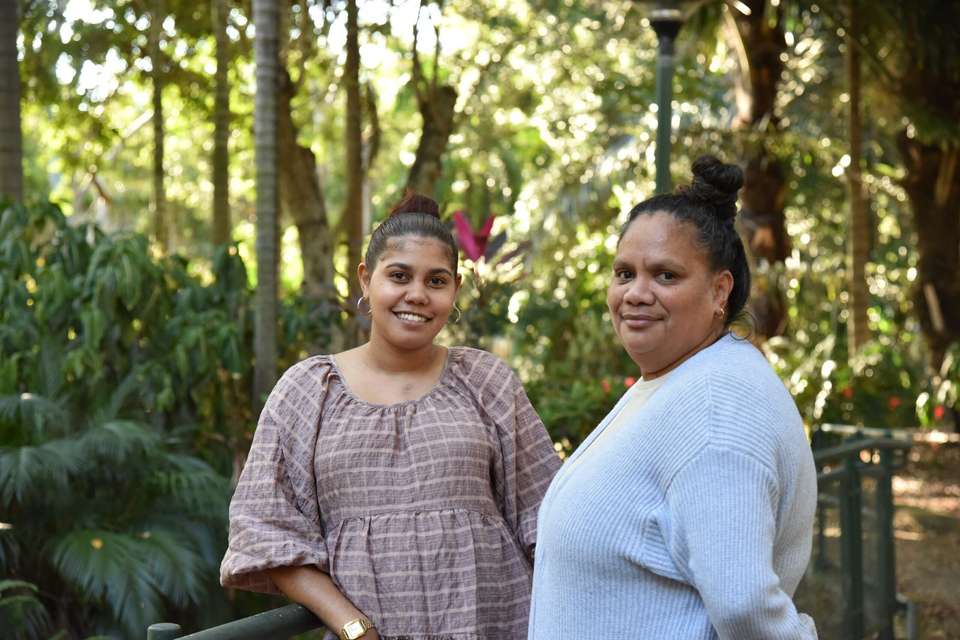Aunty and niece champion generations of care

For CQUniversity students Gwendelyn Mick and Shontara Hill, studying health care is more than a career, it’s a commitment to their community, their culture, and each other.
The pair are currently employed as Trainee Community Health Workers in the rural Queensland town of Woorabinda where they have strong generational ties to community care.
As part of their traineeship, both women are completing their Certificate III in Aboriginal and/or Torres Strait Islander Primary Health Care.
“We both applied for traineeships and enrolled in the course but didn’t know until we started!” Gwendelyn said.
“We are related through marriage. I am her aunty as she is my partners niece.
“Having a family member in the same course is great as we lean on each other, both inside and outside of work. We started the course in February and have been supporting each other through the process.”
Previously working in education and aged care, Gwendelyn, 40, spent 12 years as a teacher’s aide before shifting her focus to community health. Her decision to return to the workforce after having a child was driven by her passion for helping others.
“I like to see our young people grow and achieve their goals. I am always there for support, regardless of the age difference or whatever role we are in,” she said.
“I’ve seen generations grow up and now I see some of the kids I taught in high school coming into the clinic with their own kids.”
For her niece, Shontara, 21, a career in community health is a way for her to reconnect with her roots.
“I lived in Rockhampton but wanted to come back home to Woorabinda be with my grandmother,” said Shontara.
“I was excited to learn about the job opportunity and chance to complete the course. My nan was a health worker, and she still works part time. Now I work in the same office that she worked in. It is nice to follow in her footsteps and them pass down that experience.
“It is a 24-hour job working in a small community, and we always see people around. We will be asked for advice or reminders for appointments, but because we know them, we can build our relationship and care. We want to keep them healthy and safe.”
The duo both admit the course has presented challenges, but credit CQU and their support networks for helping them stay on track.
“It was difficult at the beginning. Some of our studies overlapped with clinic work and we had to find the balance,” said Gwendelyn.
“At the start we didn’t really know how to navigate our studies but now we are smashing through them with additional support,” Shontara added.
“Melissa from the Student Advice team heard our stress and worries and set us up with an Indigenous support worker to help us.
“It is important to just reach out, even if you have before, because someone will hear you, and someone will make that change that you need.”
Both women said they hope to use their work to honour the generations who paved the way and empower those still to come.
“I think there is a gap within the workforce, especially with young ones, that maybe don’t have the confidence or shame to work or do their best. They need the right support and environment around them,” said Shontara.
“I feel like if I can do it, I can inspire others, and these skills can be passed down to others.
“You’re never too old, or young to study, just go for it. There is always someone looking up to you, so it is important to do the best you can do,” Gwendlyn agreed.
“Our motto in Woorabinda is that our kids are the next generation. We want to break the barriers of generations past and be role models for the future.”
